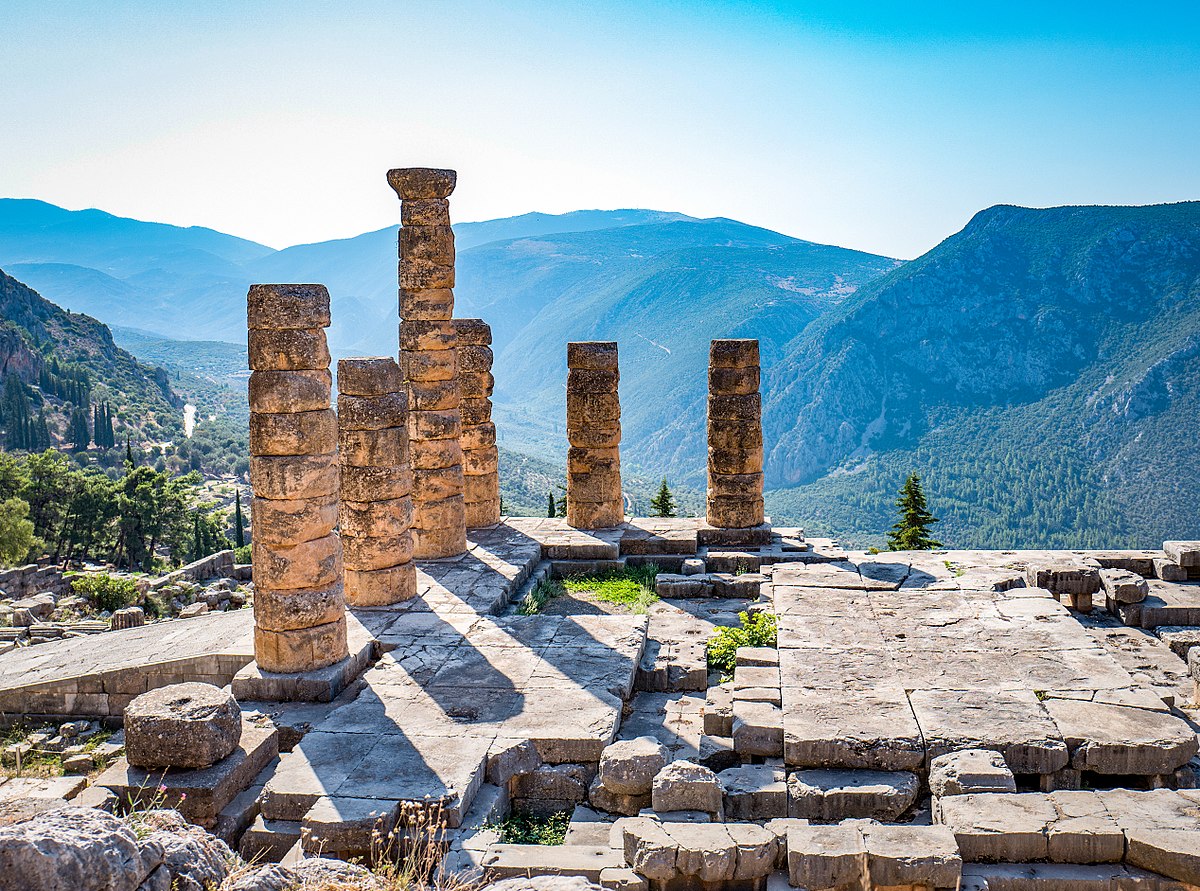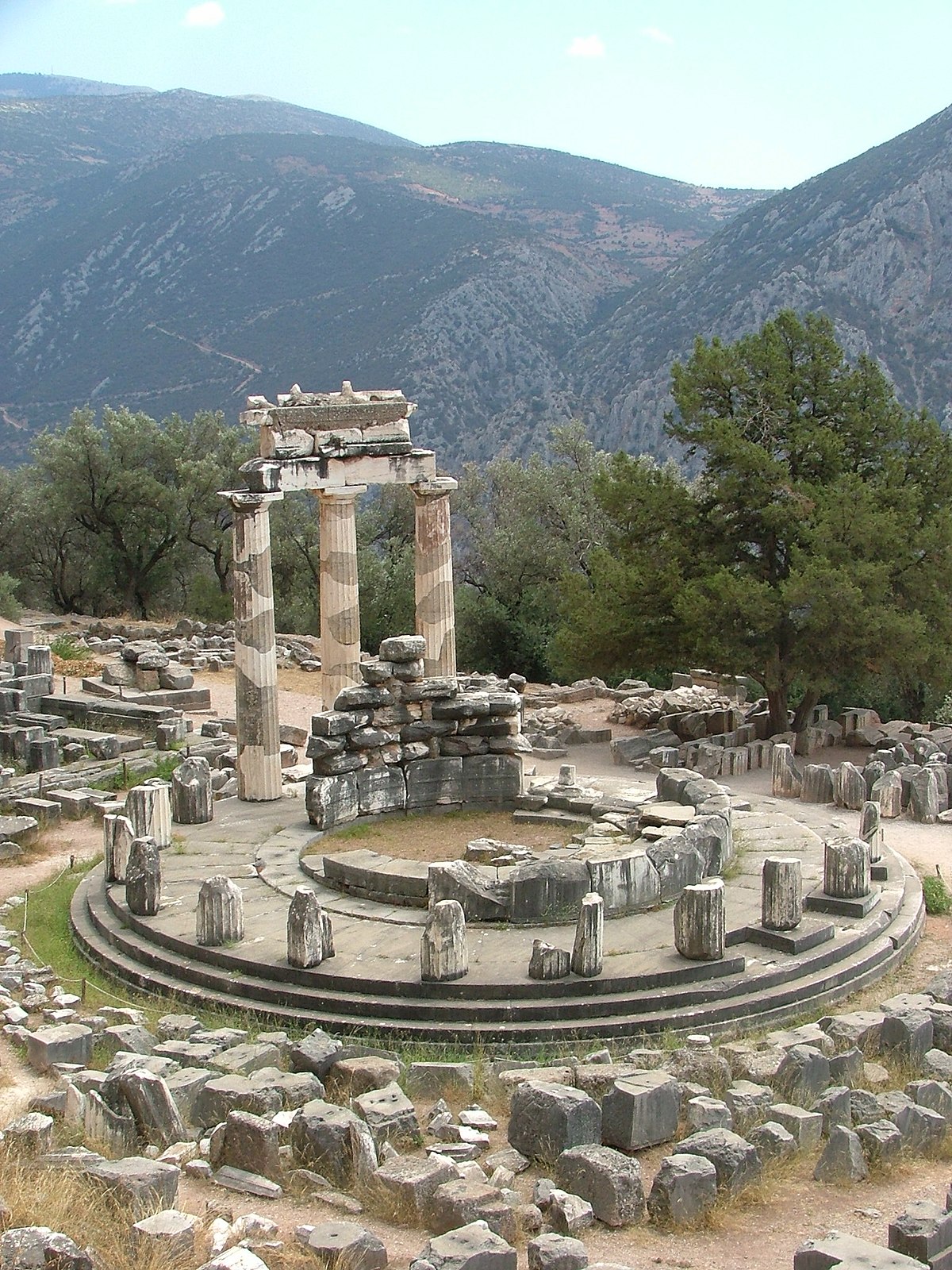
One of the most significant discoveries at Delphi was the bronze statue known as the Charioteer of Delphi. Found during excavations along the Sacred Way, this statue was dedicated by Polyzalos, the tyrant of Gela, to commemorate his victory in the chariot races at the Pythian Games, held every four years in honor of Apollo. The statue stands about 1.8 meters tall and is part of a sculpted complex that included horses and a chariot. Its artistic and historical value lies in representing the height of classical Greek bronze sculpture and offering insight into the importance of athletic competitions intertwined with religious practices.[2][5]
This discovery had direct cultural impact by highlighting the human dedication to competitive athleticism and religious devotion, embodied in Polyzalos's offering to the god Apollo. The statue was unearthed alongside other important sculptures such as the “Three dancers” column and archaic kouroi statues, revealing the rich artistic environment of the sanctuary. These artifacts remain physically displayed in the Delphi Archaeological Museum, providing tangible evidence of the community’s religious and social life. The Charioteer thus symbolizes the interconnectedness of individual achievement and collective worship at Delphi, as well as the extensive patronage that supported the sanctuary’s prominence.[2][5][4]

















